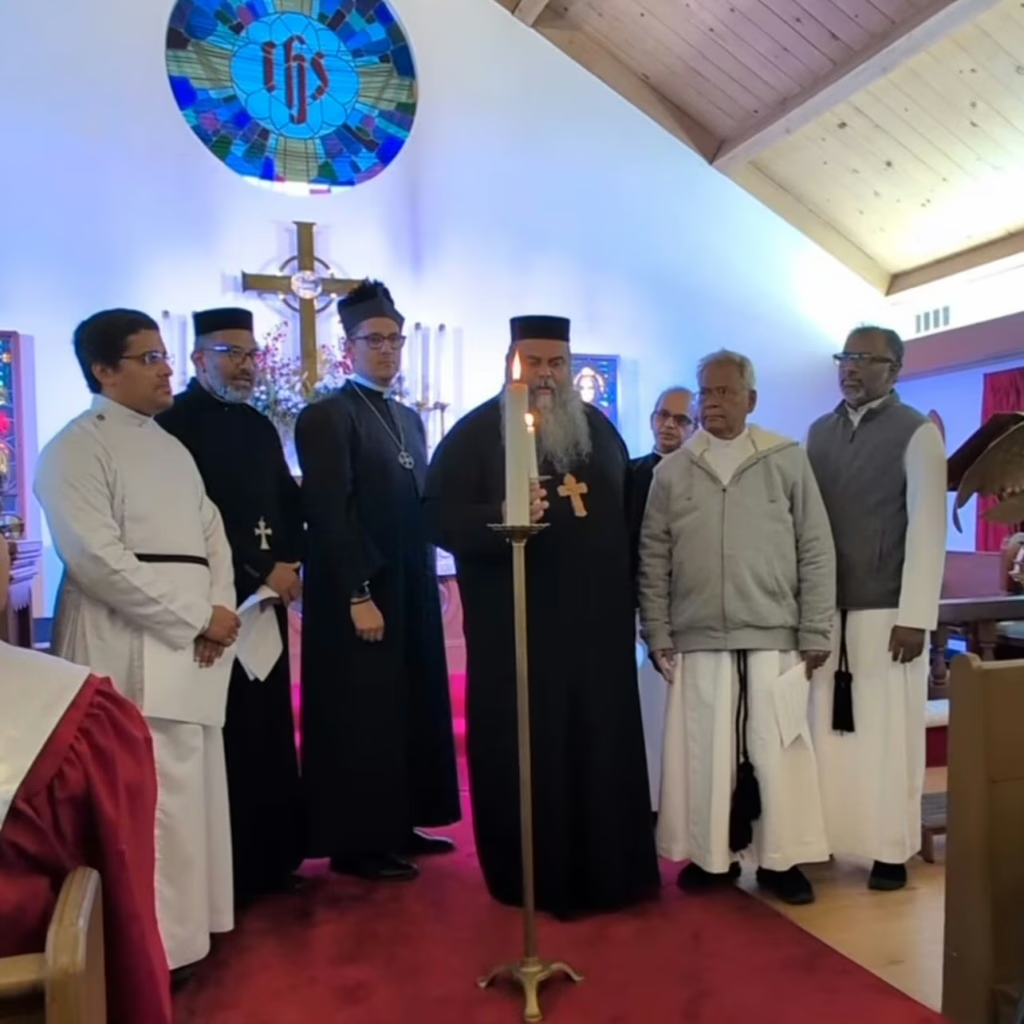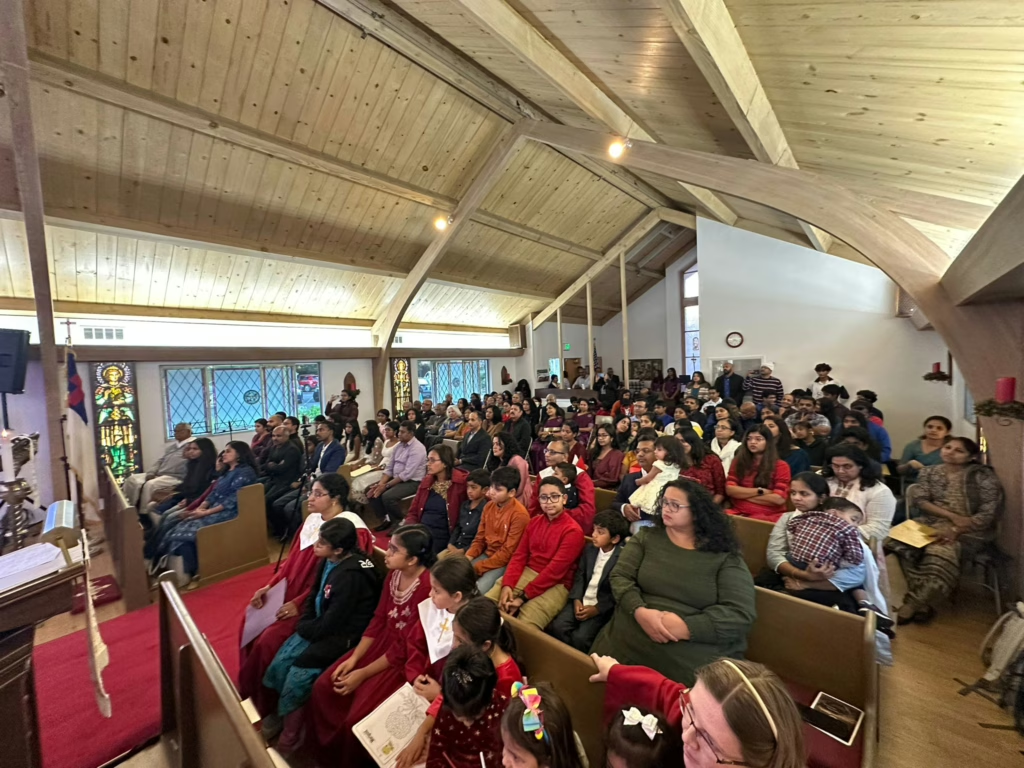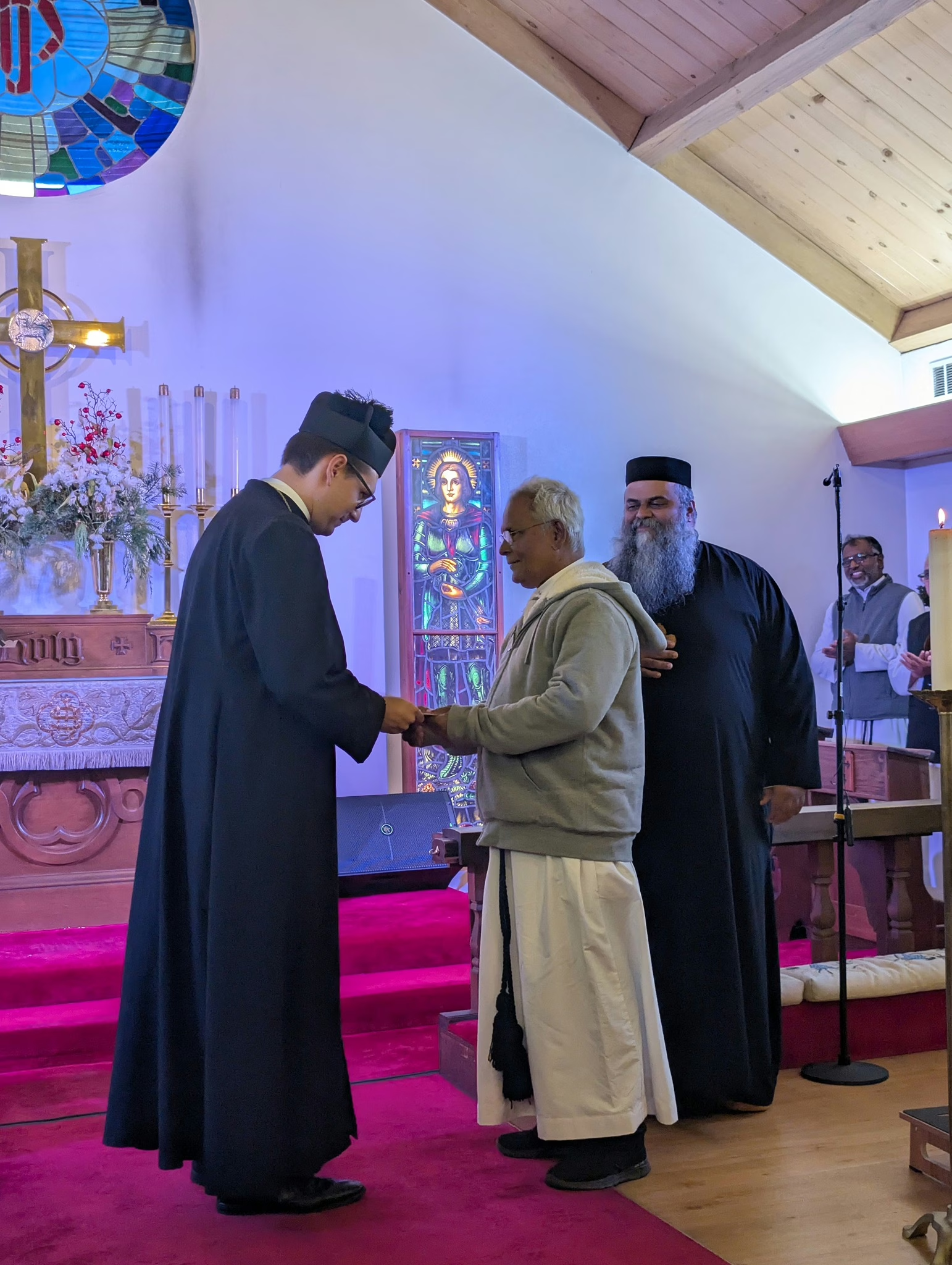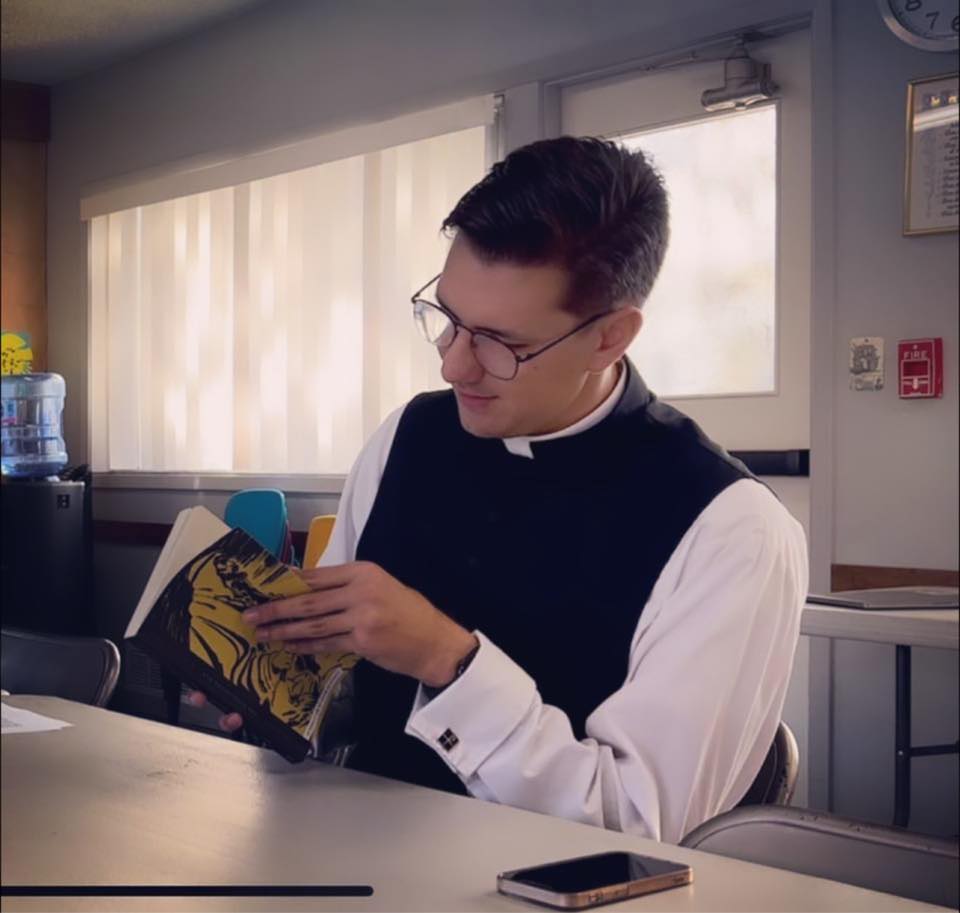On Sunday evening, I had the joy of preaching at an evening prayer service alongside our brothers and sisters from the Church of South India, the Mar Thoma Church, the Syriac Orthodox Church, and the Malankara Orthodox Church. St. Paul’s Anglican Church had the privilege of hosting this gathering with our Malayalam congregation the CSI Church of Northern California.
These Christians can generally be labelled as “St. Thomas Christians” and hail from the Indian state of Kerala. The tradition is that St. Thomas arrived in India before the end of the first century and established Christian churches along the Malabar Coast (modern day Kerala). The San Francisco Bay Area and Silicon Valley is home to an enclave of Malayali (Malayalam speaking) Christian immigrants from Kerala who work in tech, healthcare, and engineering.
Anglicanism and St. Thomas Christians
As an Anglican, our ecumenical relationships with these churches go back to British Colonial rule in India and the evangelistic efforts of the Church Mission Society (CMS). William Wilberforce of the Clapham Sect and Cambridge’s Rev. Charles Simeon famously supported the CMS efforts which led to the development of Christian schools and Malayalam Bible translations.
Today, our parish hosts the Church of South India (CSI) congregation with a Malayalam service in the afternoon with Rev. Jerrin Thomas George leading their services. Archbishop Foley Beach of the Anglican Diocese of the South (ACNA) provides state-side episcopal oversight in an agreement with Bishop Cherian of the Madhya Kerala Diocese (CSI). They organized the evening’s program continuing a decade-long regional tradition of an ecumenical prayer service among the various denominations of St. Thomas Christians.

Malayali Christian Traditions
Malayali Christians in the Bay Area belong typically choose to remain in historic denominations to keep worshipping in their language and their own cultural customs.
Jacobite
Rev. Fr. Thomas Kora Pulpparayil (Saji-achan) from St. Mary’s Jacobite Syriac Orthodox Church, San Francisco, also participated in the service, representing the Jacobite Syriac Orthodox Church. This branch of Indian Christianity is part of the Syriac Orthodox Church of Antioch, maintaining their succession from St. Thomas the Apostle and preserving the West Syriac liturgical tradition. Historically, the Jacobite Church in India remained in communion with the Patriarchate of Antioch (Syriac Orthodox Church of Antioch), distinguishing it from the Malankara Orthodox Syrian Church, which became independent in the early 20th century.
Malankara
During the evening prayer service, Rev. Fr. Teji Abraham, Vicar of St. Gregorios Orthodox Church of India – San Francisco, represented the Malankara Orthodox Syrian Church and led the opening prayer. The Indian Orthodox Church, also known as the Malankara Orthodox Syrian Church of the East, is a member of the Oriental Orthodox Communion and also traces its apostolic heritage to St. Thomas the Apostle. The Malankara and Jacobite churches separated in the 20th century over a debate over local leadership (Patriarch of Antioch vs. the Catholicos of the East.)
Mar Thoma
Rev. Saji Thomas of the Mar Thoma Church of San Francisco participated in the opening litany, representing the Mar Thoma Syrian Church of Malabar. The Mar Thoma Church is an autonomous Oriental Protestant Christian church based in Kerala, India, with historical roots in the ancient St. Thomas Christian tradition. It emerged as a reformation movement within the Malankara Syrian Church, adopting Protestant doctrinal influences while retaining Orthodox liturgical practices.
Church of South India
Rev. Jerin Thomas George represented the Church of South India (CSI) of Northern California during the service. The CSI is a union of multiple Protestant traditions—Anglican, Methodist, Presbyterian, and Congregational—and was established in 1947 to foster unity among Christians in India. The church combines Reformation-era theology with Anglican liturgical practices, and it is a key member of the Anglican Communion. Anglican Leaders like Bishop V. S. Azariah, Bishop Frank Weston, and Bishop Stephen Neil were some central figures that led to the development of CSI. Bishop Azariah died in 1945, just two years before the official formation of the CSI. However, his vision of a unified, indigenous church had already things in motion for the church.



Leave a Reply